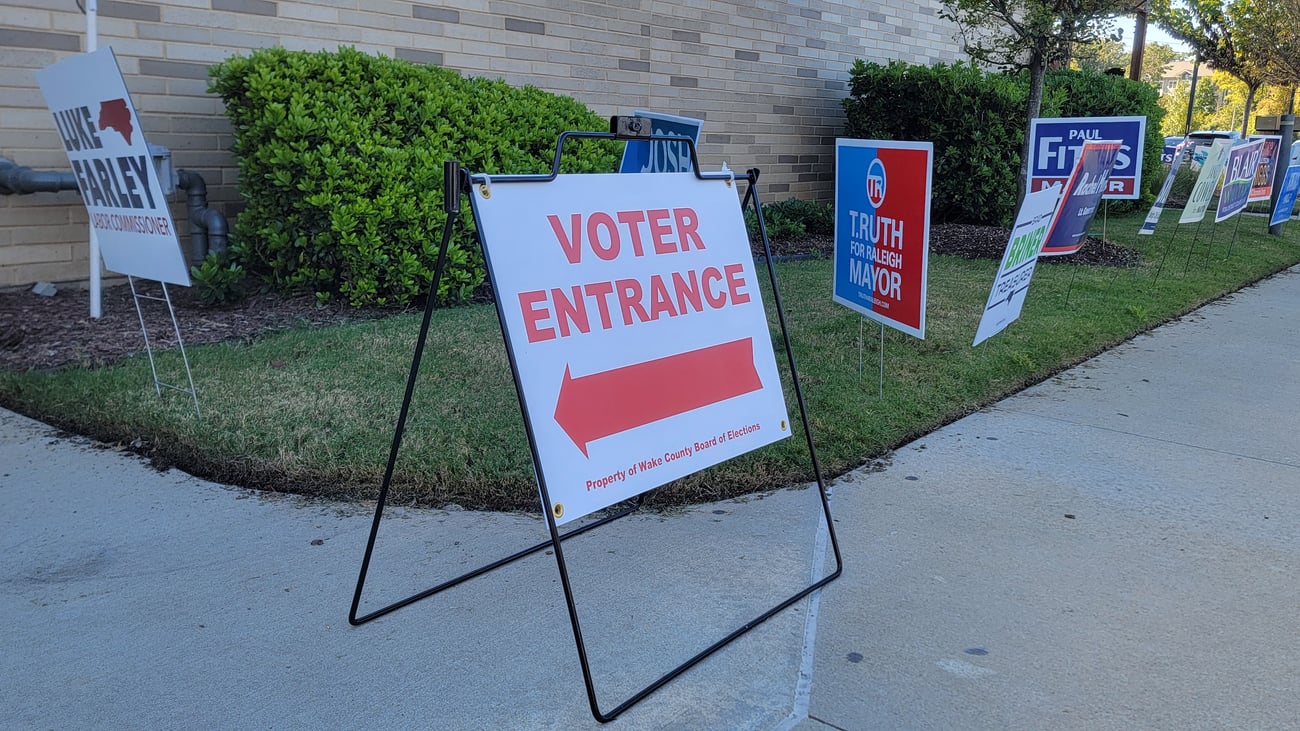
RALEIGH, N.C. (CN) — North Carolina and the federal government have reached an agreement over its handling of voter roll records before the 2024 election.
In a proposed consent order filed Thursday, the parties agreed to end the case with North Carolina required to produce reports on efforts to fix missing voter information and hand over updated voter roll records to the federal government “upon request.”
The federal government sued in May, alleging the state violated the Help America Vote Act by using a voter registration form that didn’t require a driver’s license number or the last four digits of a Social Security number. Federal lawyers said the state added restraints without confirming identifying information and requested that a full list of corrected records be turned over once the rolls are updated.
In the proposed agreement — still subject to a federal judge’s approval — North Carolina would be required to use a voter registration form that complies with the Help America Vote Act, update its federal voter list, and contact voters with missing information to update their records.
Voters with gaps in their records would still remain registered, but would have to cast provisional ballots if their information isn’t corrected before an election.
The agreement aims “to ensure that the remedy complies fully with federal law, minimizes any inconvenience to voters, and ensures that each affected voter’s ballot will be counted for federal offices if the voter is otherwise eligible to vote under North Carolina law,” the parties said in their consent order request.
In July, the North Carolina State Board of Elections began contacting more than 103,000 voters with missing information in its database, mailing letters and providing directions to update their information online. Over 81,000 voters still haven’t updated their information.
If approved, the state must submit reports to the government showing how many voters received notices and how many records were corrected. It will also file annual reports through 2027 on its compliance with federal voting laws, with the order lasting through the 2026 midterms.
The state must also provide voter records upon request, including names, dates of birth, addresses and either a driver’s license number or the last four digits of a Social Security number — information required by the Help America Vote Act for federal voter registration.
North Carolina already makes voter names, addresses and party affiliation public, said Ann Webb, policy director of North Carolina Common Cause. But she warned the proposed agreement goes further by requiring the state to share sensitive data with the federal government, potentially including the entire voter roll if requested — something voters would have no way of knowing.
“Why would any information beyond what is necessary to show their progress in addressing this particular list of voters be needed in order to enforce this agreement?” She said. “If it’s not specifically needed, then it seems like the state board should be protecting voters by limiting what they agreed to share. And it’s not clear that that’s what’s happening here.”
The potential fallout from the state sharing voter data with the federal government remains unclear, Webb added, noting that a judge must still decide on intervention requests and whether to approve the order.
Meanwhile, the Department of Homeland Security invited the state elections board in August to use the Systematic Alien Verification for Entitlements (SAVE) program to check voter citizenship and immigration status. The board delayed a decision on joining the system at its Aug. 27 meeting.
The board decided it didn’t have enough information to move forward with it, Chair Francis De Luca said after board members returned from closed session.
In May, when the lawsuit was filed, the Department of Justice began requesting statewide voter registration lists from states. 21 states have received those requests, while another five were contacted for information on voters, election officials and the state’s election processes.
In Colorado, the Justice Department asked for all records tied to the 2020 and 2024 federal elections, including registration materials, ballots and voting equipment. In Maine, Secretary of State Shenna Bellows rejected the request outright, telling the DOJ to “go jump in the Gulf of Maine.”
The Brennan Center for Justice, a nonpartisan law and policy organization, warned that such demands may violate voter privacy laws. Federal statutes like the Help America Vote Act and the National Voter Registration Act require states to maintain accurate lists but do not authorize federal agencies to directly access state databases.
All the records received by the federal government from the state will be handled in accordance with the federal Privacy Act, the parties said in their proposal.
Representatives for the state board of elections and the Department of Justice did not immediately reply to a request for comment.
